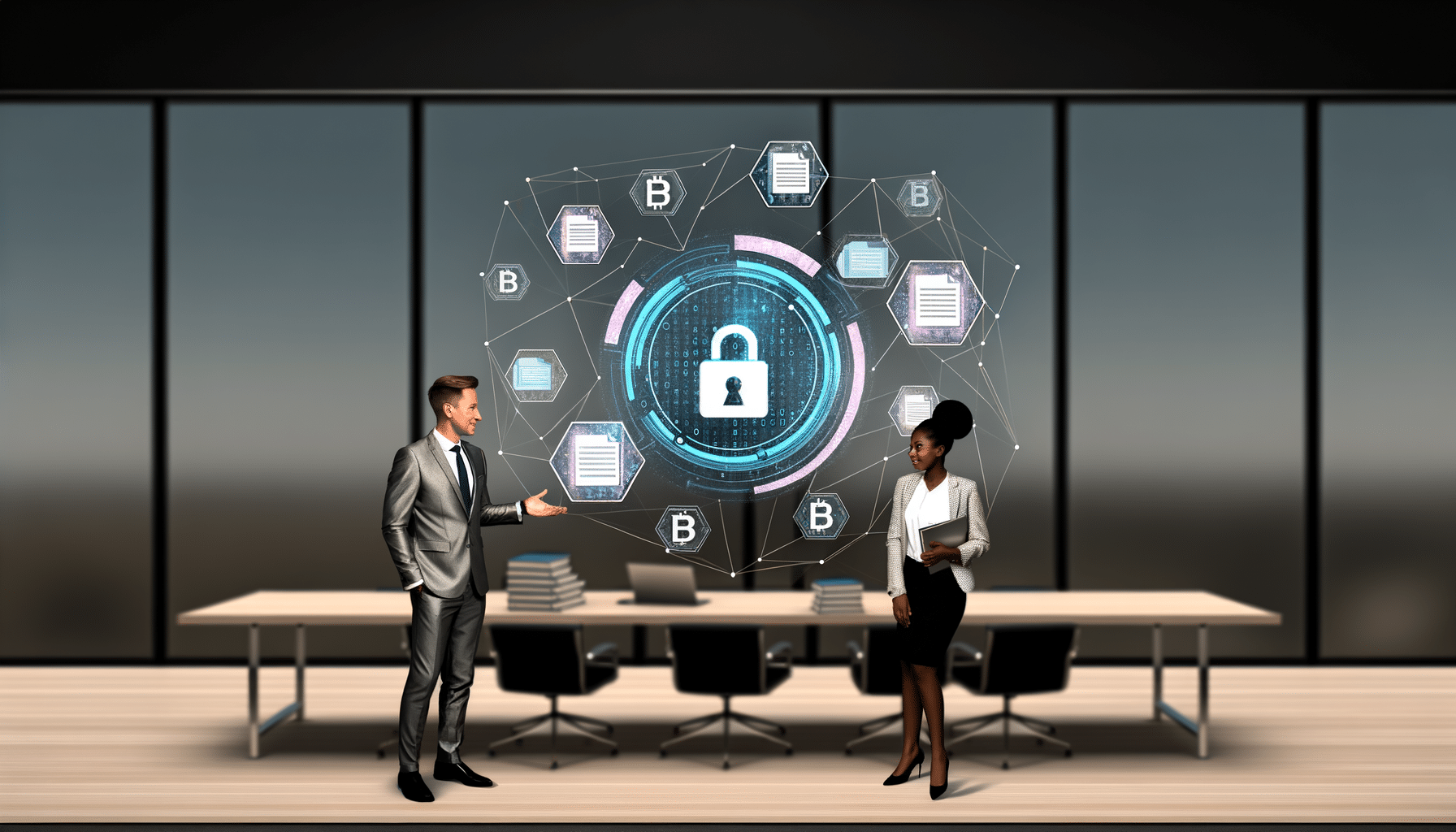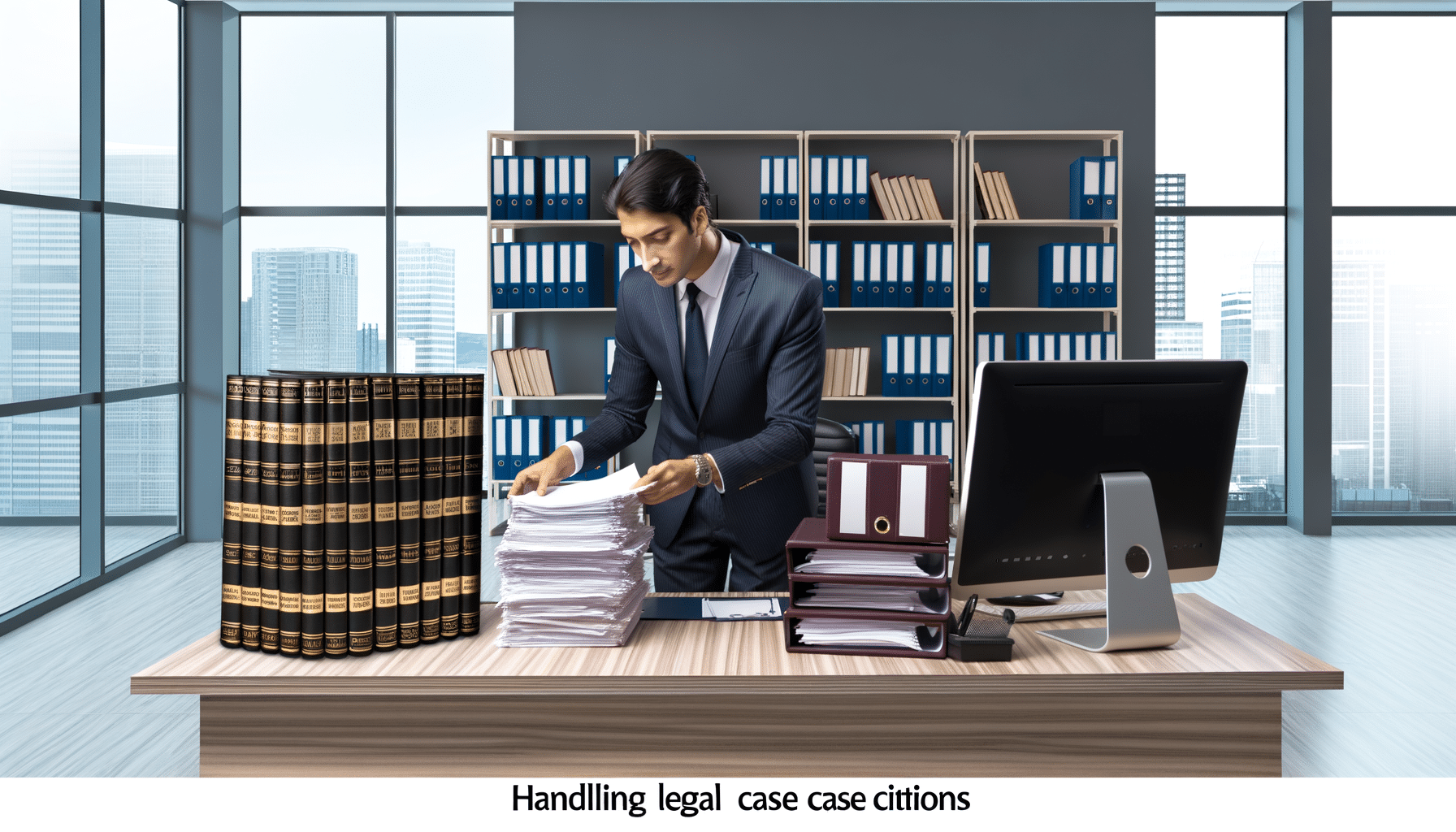- AI in Legal
- January 22, 2023
Blockchain-Based Notarization for Legal Documents

Unlocking the Future of Legal Document Verification with Blockchain
In today’s fast-paced digital era, the legal field is experiencing its own wave of transformation. As we embrace technologies like blockchain, the notarization of legal documents is on the brink of a revolutionary overhaul. As someone deeply embedded in the SaaS and blockchain ecosystems, I am truly excited to share how blockchain-based notarization is set to enhance the legal sector’s security and efficiency.
Why Traditional Notarization Needs a Modern Overhaul
The notarization process, a critical step in validating legal documents, has remained largely unchanged for centuries. While it provides a baseline level of authenticity, traditional methods are often fraught with inefficiencies and vulnerabilities. Imagine having to rely on manual stamps, signatures, and physical visits amidst a rapidly digitalizing world—a situation ripe for delays and even fraud.
Enter Blockchain: The Game Changer
Blockchain technology, with its decentralized and immutable nature, is perfectly suited to modernize this antiquated notarization process. By leveraging blockchain for legal documents, we create a tamper-proof digital ledger that enhances transparency and security.
- Decentralization: Blockchain operates on a peer-to-peer network, eliminating the need for an intermediary. Every transaction (or document notarization) is recorded across multiple nodes, ensuring no single point of failure.
- Immutability: Once a document is notarized on the blockchain, it becomes part of an unchangeable history. This ensures that any tampering attempts are immediately evident, thereby preserving the document’s integrity.
- Transparency and Auditability: Blockchain provides a transparent, time-stamped ledger of all document activities, making it easy to audit at any time. This feature ensures that every stakeholder can trust the legitimacy of the document without question.
The Mechanics of Blockchain-Based Notarization
To truly appreciate the benefits of blockchain, it is vital to understand how it applies to notarization:
1. **Digital Document Creation:** A legal document is first digitized, making it ready for blockchain notarization.
2. **Hash Generation:** The document is hashed, generating a unique cryptographic signature. This hash serves as the document’s digital fingerprint.
3. **Recording on Blockchain:** The hash is recorded on the blockchain, often along with metadata such as the timestamp and parties involved. Once entered, this record cannot be altered or deleted.
4. **Verification:** Any user or system can verify the document’s authenticity by checking its hash against the blockchain record. Given blockchain’s distributed nature, this verification can be done rapidly and securely.
Legal and Compliance Benefits
The shift to blockchain-based notarization brings several compliance and legal management advantages:
– **Enhanced Security:** Protect sensitive legal documents from unauthorized changes and access breaches.
– **Frictionless Cross-Border Operations:** The borderless nature of blockchain facilitates smoother international legal transactions, circumventing jurisdictional red tape.
– **Automated Compliance:** With everything logged on an immutable ledger, compliance with legislative standards such as GDPR and SOX is far more straightforward.
– **Efficient Dispute Resolution:** Immutable records on blockchain bolster any proceedings of legal disputes, providing a reliable source of truth.
Real-World Applications and Success Stories
Even as blockchain’s potential for notarization is only just beginning to be explored, there are already compelling applications and success stories. From property transfers to intellectual property registrations, blockchain is quietly proving itself indispensable for time-critical, highly sensitive legal processes. For instance, various governments are adopting blockchain for land registries, ensuring transparent and authenticated transactions.
Challenges and Considerations
No innovation comes without its own set of challenges. Integrating blockchain notarization involves grappling with issues such as:
– **Regulatory Hurdles:** A universal acceptance of blockchain for notarization requires legislative updates worldwide.
– **Technical Adaptation:** Legal professionals need to upskill and embrace technological changes to efficiently leverage blockchain.
– **Data Privacy Concerns:** Even with encryption, the management of sensitive information on a distributed ledger presents inherent privacy considerations.
Conclusion: A Strategic Leap Forward
If we, as industry leaders, are genuinely committed to modernizing legal document management, harnessing blockchain for notarization is a strategic leap forward. The transition from paper to digital, and now, to blockchain, isn’t just a trend; it’s an evolution with profound implications for compliance, security, and efficiency in the legal domain.
The innovation doesn’t stop with notarization. On a platform like RecordsKeeper.AI, blockchain finds myriad applications, offering an environment where document handling isn’t just a task but a transformative experience. Join me, and together let’s explore this brave new world where technology transforms challenges into opportunities.
Embark on this journey and stay informed by following me for insights into how blockchain continues to reshape our operational vistas.
Toshendra Sharma is the visionary founder and CEO of RecordsKeeper.AI, spearheading the fusion of AI and blockchain to redefine enterprise record management. With a groundbreaking approach to solving complex business challenges, Toshendra combines deep expertise in blockchain and artificial intelligence with an acute understanding of enterprise compliance and security needs.
Related Posts


Archives
- January 2025
- December 2024
- November 2024
- October 2024
- September 2024
- August 2024
- July 2024
- June 2024
- May 2024
- April 2024
- March 2024
- February 2024
- January 2024
- December 2023
- November 2023
- October 2023
- September 2023
- August 2023
- July 2023
- June 2023
- May 2023
- April 2023
- March 2023
- February 2023
- January 2023
- December 2022
- November 2022
- October 2022
- September 2022
Want to get more content like this?
Signup to directly get this type of content to your inbox!!
Latest Post
Document Control for Equipment Maintenance
- January 20, 2025
Managing Records for Multiple Clients
- January 19, 2025
Handling Conference Documentation
- January 18, 2025
Setting Up Department Record Reviews
- January 17, 2025





